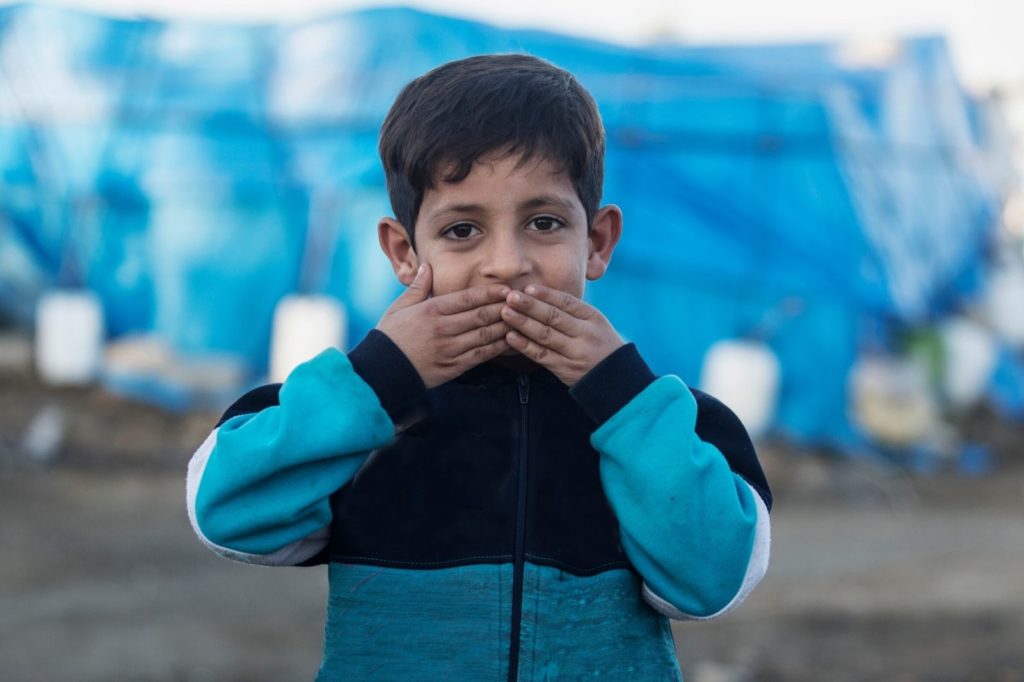With the recent heart-wrenching images of migrant children in the news, there is an increased awareness of the unique mental health needs of migrant and refugee children. Since 1980, there have been about 3 million refugees who have resettled in the US and 35-40% of them were children, according to the organization Bridging Refugee Youth & Child Services. Being exposed to a range of physical and psychological stressors places these refugee children at higher risk for physical and mental health issues requiring treatment. Sadly, research cited by the National Institutes of Health has found that refugees are less likely to seek mental health treatment. This could be due to a lack of understanding of mental illness and treatment options in general, and the fact that it is often more difficult for refugee children to access the mental health services they need.
Unique Stressors of Refugee Children
Refugee children are exposed to a unique set of stressors, not only while living in their country of origin but also during their journey to their new country and as they settle into a new country. Additionally, refugees are faced with leaving their familiar homeland behind and adjusting to a completely new culture and way of life. Let’s look at the three key refugee populations from Myanmar, Iraq, and the Democratic Republic of the Congo to see how this plays out.
Myanmar has been experiencing political conflict for several years and its citizens are exposed to numerous stressors including “vulnerability to natural disasters, food and nutrition insecurity, armed conflict, inter-communal tensions, statelessness, displacement, trafficking, and migration.” Similarly, because of the unrest in their home country, refugees from Iraq were exposed to air bombardments, witnessing harm being done to others, being interrogated by militia, and losing friends and family. And refugees from the Democratic Republic of the Congo are exposed to the effects of war, unrest, discrimination and persecution, according to the CDC.
Mental Health Risks & Cultural Perceptions
Research has found that refugee children are more at risk for specific mental health issues including post-traumatic stress disorder (PTSD), anxiety, and depression. For example, one study found that refugees who relocate to Western countries are at risk for PTSD at a rate that is 10 times greater than the general population. Additionally, in a study of Syrian refugee children, researchers found that children exposed to trauma were more likely to have higher post-traumatic stress symptom scores. These elevated risks for mental health issues emphasize the great need for increased access to mental health treatment for refugee children. However, a lack of education about mental illness and its treatment, and the stigma surrounding mental health are potential barriers to treatment.
For Myanmar refugees, mental health isn’t openly discussed in general, although researchers found that Myanmar refugees are more open to discussing their symptoms when talking to a qualified mental health professional. However, a lack of understanding about the benefits of psychotherapy combined with misconceptions around mental illness can prevent them from seeking treatment.
The International Rescue Committee has found that Iraqi refugees who come to the US experience more mental health issues than other refugee groups, according to the CDC. Yet among Iraqi refugees, mental health literacy is often low. For example, one research study found that when presented with a scenario of a refugee with symptoms of PTSD, 41.8% of refugees labeled the symptoms as a “problem with fear” while only 14.2% identified the symptoms accurately as PTSD.
For Congolese refugees, research has found that while there is some understanding of mental health issues among refugees, they may be reluctant to seek professional treatment and instead seek the help of family and friends. This reluctance may be due to a misunderstanding of the role of mental health professionals and services.
What We Can Do
How can we help refugee and migrant children access the mental health services they need? Some researchers have recommended interventions at the school-based level. Since educators spend a great deal of time with their students on a daily basis, they have a unique opportunity to recognize behaviors that may indicate a child needs mental health services. Educators can then refer the family to appropriate services in their community.
Since refugee children are often exposed to and experience traumatic events, many mental health experts believe they would benefit from receiving trauma-focused interventions. Trauma-focused therapy can help the children process what they have been exposed to, which in turn helps them minimize the impact of those stressors. Additionally, since refugee families are faced with adjusting to a new culture and home and leaving behind their home country, family therapy is recommended to address any parenting stress or relationship issues within the family.
While there is great need among the refugee community for children, the good news is that increasing access to mental health services and providing education to help remove the stigma of mental illness can help minimize the impact of the stressors and traumas that refugee children face.










